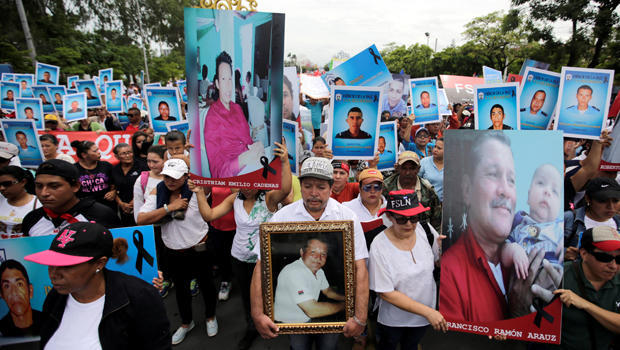When it comes to Cuba and China, getting any real cooperation is for the most part impossible. The matter of U.S. diplomatic personnel in both countries being affected with several health issues due to some kind of sonic weapon is a scandal few mention anymore. Actually is it any less important than the attacks on our posts in Benghazi, not to diminish the tragic deaths? The use of sonic weapons is an attack on our sovereign territory.
Let’s go deeper.
In a page taken from a Cold War-era playbook, existing evidence clearly suggests that sonic weapons are being used to attack American diplomatic officials in Cuba and China. The U.S. should operate as if this is a provocation that crosses a number of red lines, and it should consider stronger retaliatory actions against both governments.
More than 20 news sources in recent months have dubbed these incidents as a “mystery” or “perplexing.” No news source has been willing to recognize it as a strategic, deliberate action against our diplomatic officials. Thus, the only “mystery” is why the U.S. has not been more aggressive in pushing back against and increasing the consequences for the perpetrators, most likely official elements in China and Cuba. Fear of damaging the “normalization project” between the U.S. and Cuba should not encourage denial of what appears to be deliberate, hostile actions.
In late 2016, U.S. diplomats in Cuba reported serious medical ailments related to incidents that occurred over several months and initially appeared to be linked to sonic attacks. Many of the victims reported strange sounds that were incapacitating and led to a series of medical symptoms, including hearing loss, cognitive issues, temporary imbalance, even mild traumatic brain injuries. Several victims have undergone rehabilitation and every victim is anticipated to return to work eventually. Nonetheless, these patients likely will need to be monitored for the rest of their lives, to determine the full impact of these attacks.
In June, U.S. officials in China faced similar attacks that affected at least one diplomat. Secretary of State Mike Pompeo said the incident was “similar” and “entirely consistent” with what happened in Cuba.There are studies that have proposed possible explanations based on experiments, but these tests were limited and did not account for potential physiological damage. A University of Michigan study examined whether ultrasound could be the potential cause of the incidents in Cuba. This experiment led to various possible explanations including ultrasonic emitters – intended for eavesdropping – that produced audible tones that inadvertently may have harmed U.S. diplomats.
The incidents in Cuba targeted 24 government officials and their spouses in specific hotel rooms or private residences; some individuals reported that shifting even a few feet within the room made the auditory sensations cease. Medical examiners have recognized that, while these symptoms could come from viral infections, given the pattern of injuries it is likely the result of a “non-natural cause.” There are some technologies from the Cold War era that could be the source, and intelligence officials are investigating that possibility.
Given the similarities in the attacks and the lack of robust research and development efforts in Cuba, it is plausible that the technology was given to Cuba by the Chinese. China has recently become interested in non-lethal weapons, having developed a weapon known as the Poly WB-1, a long-range pain beam that can be used to break up protests or riots.
China has strong diplomatic and economic ties to Cuba, is Cuba’s number one trading partner, whereby Cuba imported $1.8 billion in goods from China in 2015; President Xi has visited Cuba on several occasions between 2014 and 2015. China has much deeper ties to Latin America and the Caribbean than 15 years ago; it is very plausible that China has military and intelligence links with Cuba. As recently as March 2017, China’s former Defense Minister, Chang Wanquan, met with Leopoldo Cintra Frias, Cuba’s Head of Revolutionary Armed Forces with the hope of improving military cooperation.
The U.S. expelled 15 Cuban Embassy officials – roughly 60 percent of the Cuban Embassy staff – after the 2016 attack, though the diplomatic positions of these individuals remain a mystery. Likewise, the U.S. pulled around 60 percent of its 54 personnel from the U.S. Embassy in Cuba, removing all “nonessential personnel.” The incident in China has not yet led to any expulsion of Chinese Embassy officials although, following these most recent attacks, Secretary Pompeo has called for a taskforce to investigate the possible causes.
Congress held a hearing on the incident in January. House Foreign Affairs Committee Chairman Ed Royce (R-Calif.) and Ranking Member Eliot Engel (D-N.Y.) wrote a letter to the heads of the National Institutes of Health and the Centers for Disease Control, calling upon them to investigate the matter.
If these investigations prove what appears to be the case – strategic and deliberate hostile actions – then, clearly, much stronger action is needed.
These recent incidents follow decades of low-level harassment of U.S. Embassy staff overseas. Many U.S. diplomats in Cuba have reported incidents of suspicious behavior, invasion of privacy, poisoning of family pets, and other forms of harassment similar to attacks used in Russia on U.S. diplomats.
Given the continued provocations, it is time to admit that these governments see us as adversaries and are likely taking actions against us. China certainly does, given the recent leak of a Chinese memo in February revealing China’s aim to surpass U.S. military strength. Likewise, Cuba does not want normalization of relations; for many years the dictatorship under both Castros has aimed at protecting “the revolution,” and a recent speech by Cuba’s newly appointed dictator, Miguel Diaz-Canel, suggests he does not want normalization either.
We need to address this diplomatically and consider a variety of options, including possibly expelling senior Cuban and Chinese diplomats, until what are very likely purposeful attacks on our personnel stop. We cannot have a normal relationship if we are being abused. We should recognize that this is part of standard operating procedures of both countries, and we need to increase the consequences.
Daniel Runde is a Senior Vice President and William A. Schreyer Chair in Global Analysis at the Center for Strategic and International Studies. He previously worked for the U.S. Agency for International Development, the World Bank Group, and in investment banking, with experience in Africa, Asia, Europe, Latin America, and the Middle East.
***
The LRAD sound cannon is one of the better-known acoustic weapons designed to disperse crowds or disable a hostile target. It emits bursts of loud, irritating sounds that can discourage violent behavior.
Aside from being annoyed from an ear walloping, those targeted can also experience effects like headaches and nausea.
Sound as ammo
Since acoustic weapons use sound, these weapons deliver what could be described as “invisible” attacks.
One interesting twist in acoustic weaponry is Raytheon’s research into a “sonic shield.” Towards the end of 2011, Raytheon filed a very interesting patent for this weapon.
Both shield and weapon
The Sonic Shield looks and functions like the riot shield that military and law enforcement use – but this shield is also a weapon.
Typically, acoustic weapons use sound against a target’s sense of hearing. But rather than target the ear, this acoustic weapon targets the lungs.
It would unleash this invisible “ammo” in a way that can cause the sensation of suffocation. So if you were a target, you would suddenly have a sense of suffocation but have no idea what was causing it – because the beam can not be seen.
The user can choose the intensity and unleash the invisible acoustic “ammo” at a level meant to warn and deter through to one intended to “temporarily incapacitate.”
Blasting wall of sound
According to the patent, Raytheon also aimed for a bunch of shields to be able to coordinate and work together to deliver a wall of sound.
The networked shields would provide a powerful combined beam. One shield could be designated as the lead or “master” shield, with the others being subserviant. The master shield would direct and coordinate the beam patterns.
A team of shields would deliver a more sophisticated beam with better power, range than the capabilities of a single shield.
For example, they could be used to create a more effective perimeter in a large riot scenario when trying to contain a dangerous situation.
How does it work?
The sonic shield looks and functions like a riot shield. It is a fortified “shell” with one side for the user and the other to face the target.
There is an acoustic horn as well as a sonic pulse generator built into the physical shell of the shield. This sonic pulse generator creates the acoustic pulses that blast out through the horn directed at the target.
When the user fires, the shield triggers the sonic pulse generator to generate a shot. The shot can include a burst of multiple pulses at a repetition rate fixed (or varied) for each of three settings: Warn, Stun or Incapacitate.
The shield could also be equipped with a sensor that measures the distance to the target. If the target moves, then the weapon could automatically adjust to maintain the same pressure. More here.
***
In fact, LRAD, which is 33 inches in diameter and looks like a giant spotlight, has been used by the U.S. military in Iraq and at sea as a non-lethal force. In these settings, operators can use the device not only to convey orders, but also as a weapon.
When in weapon mode, LRAD blasts a tightly controlled stream of caustic sound that can be turned up to high enough levels to trigger nausea or possibly fainting. The operators themselves remain unaffected since the noise is contained in its focused beam.
“We’ve devised a system with a multiplicity of individual speakers that are phased so sound that would normally go off to the side or up or down, cancels out, while sound directly in front is reinforced,” Norris explained. “It’s kind of like the way a lens magnifies a beam of light.” The Department of Defense gave Norris and his team funding to develop LRAD following the 9/11 attacks. The concept is to offer an intermediate tool to warn and ward off attacking combatants before resorting to force.






 Gennady Petrov (Source: OCCRP)
Gennady Petrov (Source: OCCRP)
 Vladimir Potanin
Vladimir Potanin